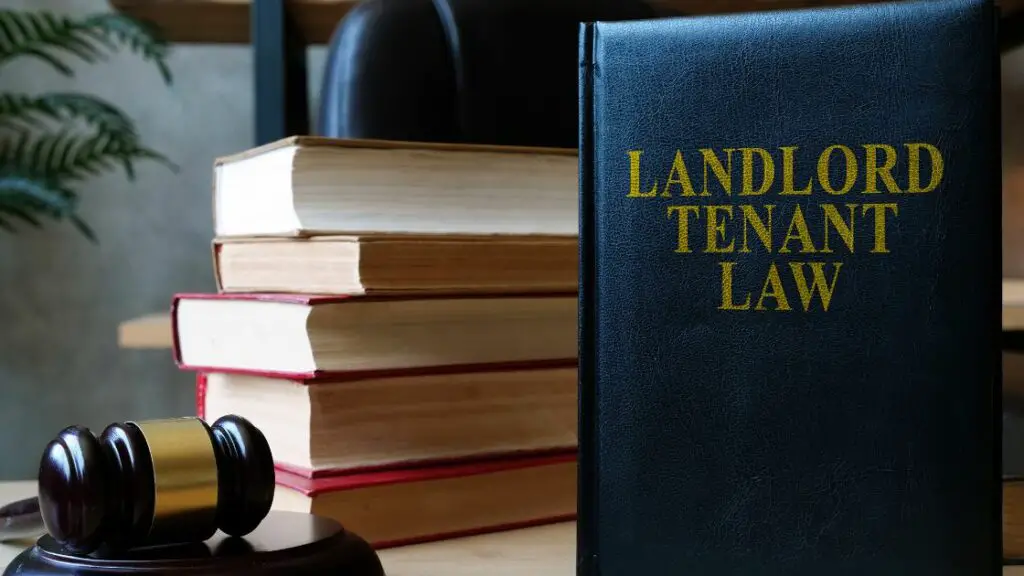In our increasingly digital world, online payments have become a common method for handling financial transactions, even in the realm of rental payments.
Some landlords are moving away from traditional means of collecting rent, such as checks and cash, towards digital platforms. But the question often arises: can a landlord force a tenant to pay rent online?
In many jurisdictions, the short answer is no, landlords cannot force tenants to pay rent online. However, the specifics may vary depending on the locale, the terms of the lease, and the specific circumstances involved.
The information contained in this post is for informational purposes only. It is not legal advice. You should seek the advice of a qualified legal professional before making any decisions relating to the topics covered by this article.
We may earn commissions from products and services that are purchased or recommended through our website as part of our affiliate partnerships. As an Amazon affiliate, we may earn from qualifying purchases.
Tenant Rights and Legal Protections

Tenants typically enjoy legal protections regarding the way they can pay rent.
Most states in the U.S., for example, have legislation ensuring tenants can pay through at least one non-electronic means, such as cash or check.
These laws aim to protect tenants who may not have access to online banking, such as the elderly, those with low income, or those without stable internet access. Moreover, forcing tenants to pay online could potentially lead to allegations of discrimination.
If you are unsure of where you stand in relation to your area’s specific laws and requirements, you should conduct some research to understand where the lines are drawn (or have a lawyer help you).
If you prefer to have a lawyer assist you, I would try JustAnswer. They boast access to thousands of highly-rated, verified real estate lawyers whom you can connect with via their unlimited chat service.
By clicking the banner below, you can get a one week trial membership for only $5, which you can cancel at any time.

Landlord and Lease Agreements
Landlords, on the other hand, may promote online payments due to its convenience and efficiency.
It eliminates issues with lost checks, slow mail delivery, and offers a digital record of all transactions. The landlord could potentially state in the lease agreement that online payment is the preferred method. However, this does not necessarily mean that a tenant can be forced to adhere to this method.
In such instances, tenants usually have the right to request alternative payment options. If the landlord refuses, the tenant may have legal grounds to challenge this in court.
Now I am speaking in generalities and it is important to note that all of this is going to vary by state and potentially locality.
So regardless of whether you are a landlord or tenant, it makes sense to familiarize yourself with the applicable laws in your jurisdiction so you can fully understand the legal landscape around this issue for your situation.
Navigating the Digital Divide
While it is true that many people have embraced digital transactions, it is essential to acknowledge the “digital divide”—the gap between those who have ready access to computers and the internet, and those who do not.
Not everyone has access to a stable internet connection or digital literacy to navigate online payment systems comfortably. Landlords should be aware of this and provide alternative means of payment.
A Matter of Mutual Agreement
Ideally, the method of payment should be mutually agreed upon between the landlord and tenant, stated explicitly in the lease agreement. As a tenant, if you’re uncomfortable with online payments or unable to access such services, discuss this with your potential landlord before signing the lease.
An understanding landlord should be willing to accommodate your needs.
Tips for Landlords
Landlords keen on promoting online payments can incentivize the process rather than mandating it. Offering benefits such as small discounts for online payments or establishing a secure, easy-to-use online payment system could encourage more tenants to make the digital transition.
Highlight the advantages of using digital payments, including easy tracking and verification of payments (no more need to keep track of paper receipt for rental payments, etc.). You can also emphasize how easy it is to automate payments so the tenant does not have to remember to initiate payment each month.
Tips for Tenants
For tenants who prefer to pay rent traditionally, it’s essential to voice your concerns. Don’t feel pressured into accepting terms you’re uncomfortable with or unable to comply with due to technological limitations.
Even if digital payments are widely adopted, what landlord care about at the end of the day is actual on-time payment. They are worried about checks that bounce, get lost in the mail, and any other scenario where they do not get paid in full on time, every time.
If you can alleviate these concerns, you will be able to go a long way in smoothing out this issue with your landlord (for example, you can offer to pay with certified check each month, which assures that the check will not bounce)
Conclusion
In conclusion, while digitalization is shaping the future of many transactions, including rent payments, it’s crucial to maintain flexibility and accessibility.
A landlord cannot generally force a tenant to pay online; it is an issue that requires understanding and negotiation from both parties. As we move further into the digital age, let’s strive for inclusivity, bridging the digital divide instead of deepening it.